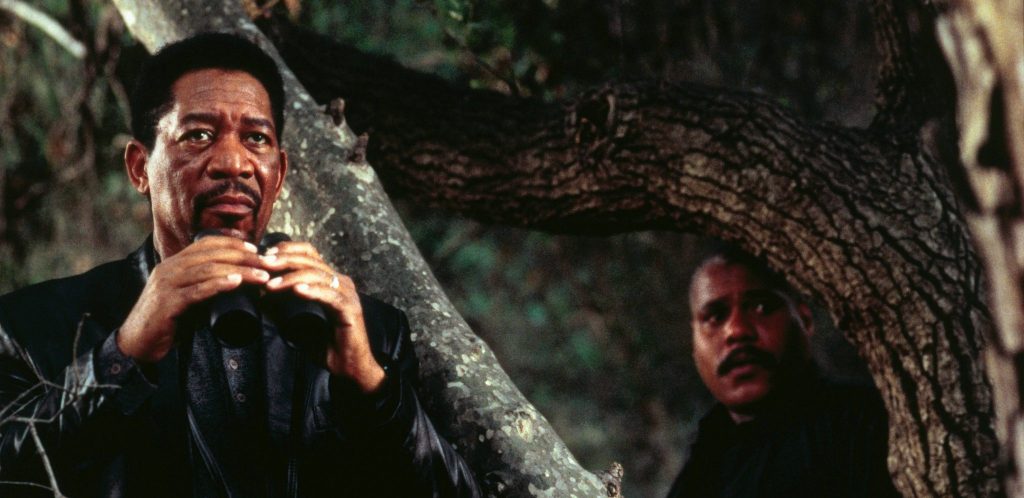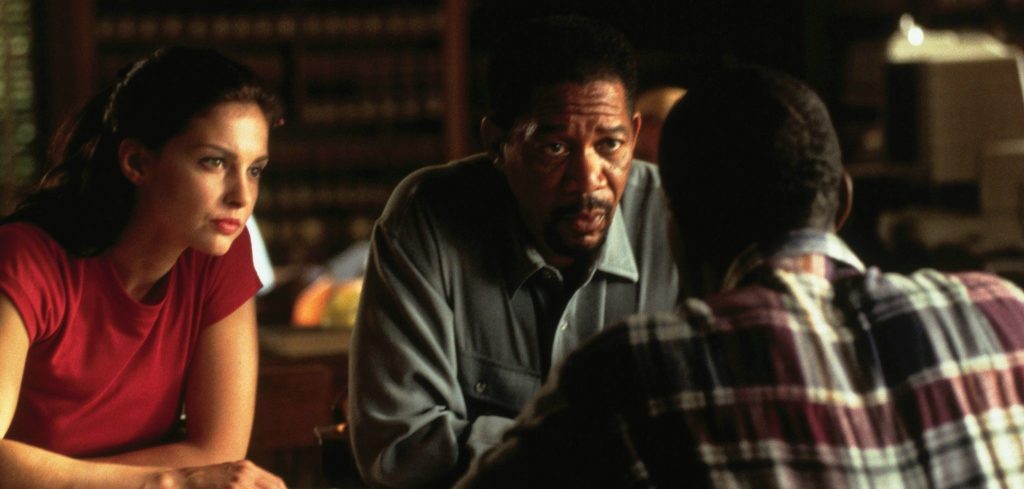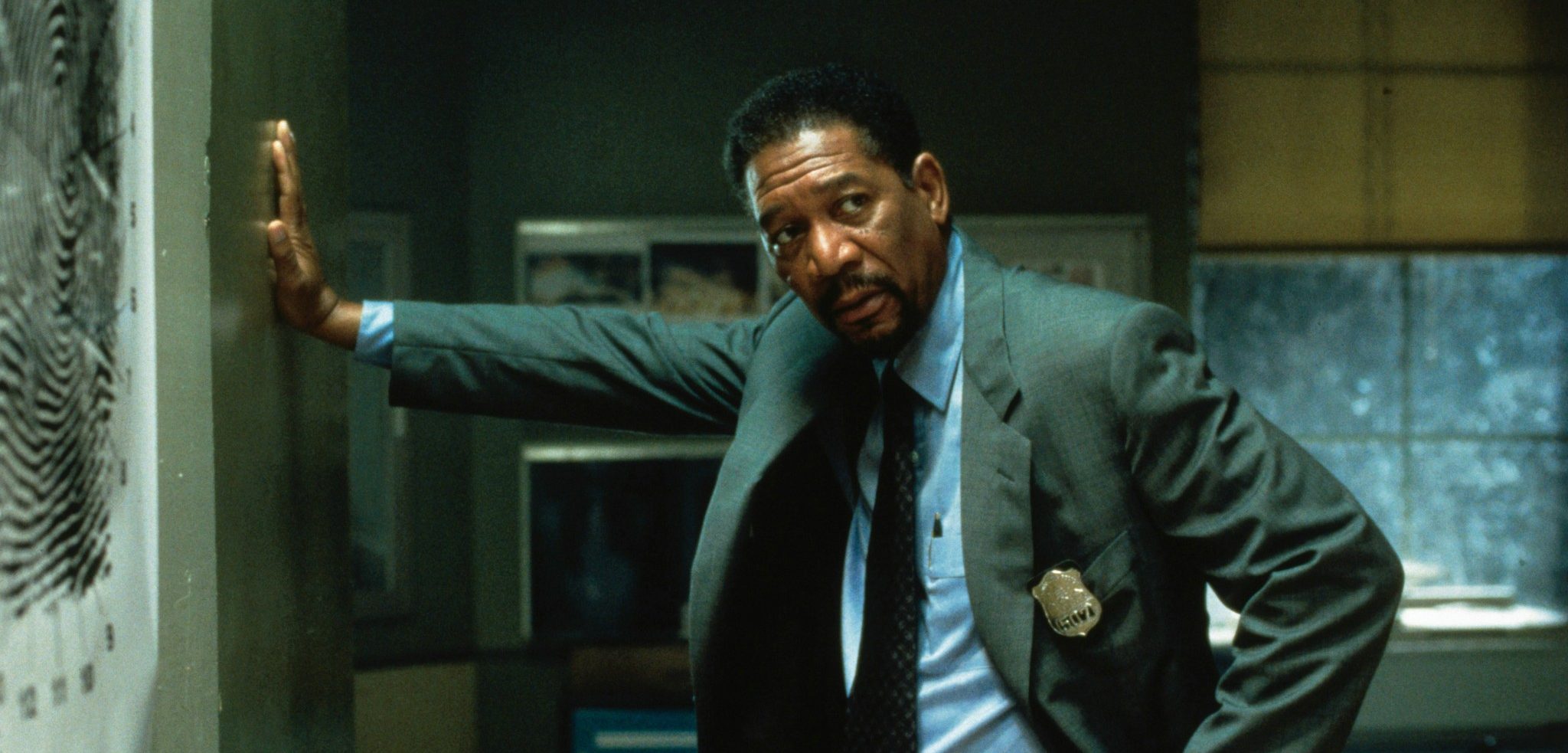In the 1997 thriller film, ‘Kiss the Girls,’ a Washington P.D. detective and psychologist, Alex Cross, travels to North Carolina to search for his niece, Naomi Cross, who has been reported missing by her family. Unbeknownst to him, as he arrives at the Durham Police Department, he learns that several other women have been reported missing, his niece included among them. The veteran investigator recruits the aid of one of the survivors, Dr. Kate McTiernan, who escaped from the clutches of her abductor. The pair races against time to save the women while uncovering the sinister machinations of Casanova, the main antagonist.
Directed by Gary Fleder, the neo-noir psychological drama portrays a macabre plot of serial abduction, rape, and murder. The threat haunting Cross isn’t just an external kind but also in the mind due to the personal stakes at play. The women kept in abduction are sedated, collected as a form of harem play, and killed when they cross the line. With their lives in jeopardy, a state of panic and desperation forces the hand of the authority to capture the person behind it all and resolve the issue as soon as possible. The story’s central themes of sexual attraction, twisted roleplay, and a callous murderer force a closer examination of the narrative roots and whether a real story inspired it.
Kiss the Girls is a Fictional Serial Abduction Tale Based on a Novel
‘Kiss the Girls’ is an adaptation of James Patterson’s 1995 fictional novel of the same name. David Klass turned the book into a screenplay and made certain changes to the narrative, removing a few subplots and a key character, Beth Lieberman. However, the general framework of the story, including its outcome and overall plotline, remains intact in the cinematic version. At the heart of the film lies a macabre tale of interconnected abductions and murders rising in the state of North Carolina. It creates a sense of tension, dread, and terror amongst everyone as they attempt to locate all the missing women before something truly horrifying befalls them.

In a video interview, the director, Gary Fleder, pointed at other thriller films and books as an inspiration for the narrative. He said, “As you know, from other movies and other books of the genre. I mean, there is, unfortunately, a whole sort of history of sexual predators, especially in our culture, in our society, in North America. And a guy who actually kidnaps a woman as a collector there actually have been somewhat more grotesque versions of that.” The abduction and twisted sexual themes reflect the dangerous psyche of the killer. It is a game of dominance, which leads to a sense of foreboding and nightmarish scenarios.
“There is historical basis for it,” Fleder continued, “and even John Hinckley, before he did what he did with the President. I mean, Hinckley also had a fantasy about kidnapping Jody Foster at some point. In stalking her and kidnapping her and sort of making her love him.” According to the director, Casanova, the main antagonist and killer, holds similar aspirations in ‘Kiss the Girls.’ He desires all the abducted women to love him back as he loves them, somewhat mirroring John Warnock Hinckley Junior, who attempted to kill President Ronald Reagan in a vow to impress actor Jodi Foster, with whom he was enamored at the time.
Hinckley Jr. got obsessed with her after watching the thriller film, ‘Taxi Driver,’ where she plays a 12-year-old sex-trafficked girl. During a brief period, he even stalked Foster when the actor was enrolled at Yale University. He would repeatedly leave her love letters, poems, and messages, anything to get her attention, which ultimately never bore any fruit. His fascination with her eventually grew to such an extent that he fantasized about gaining her interest and affection by undertaking a larger scheme. This would play out in the form of him attempting to assassinate President Reagan. It was unsuccessful, and Junior was apprehended.
The Movie Changes Detective Alex Cross’ Domestic Life

While the film remains grounded in its psychological thriller roots, James Patterson, the author of the novel, ‘Kiss the Girls,’ on which the book is based, noticed certain changes to the protagonist’s life. “He’s older than the character [in the novels], so the family disappears,” he said in an interview. “In the books, Alex is raising three little kids. And that’s a big difference. To me, that’s the only negative thing: that his family isn’t in the movies.” These changes were facilitated by Morgan Freeman, who plays Alex Cross, due to him being older than Alex in the book’s narration. According to Patterson, the family aspect is what helps people identify with the character and care for his struggles.
“I think on some level, we all identify with Alex” the writer continued. “He’s always juggling his work and his family, which is what most of us – not all of us – but a lot of us do. We’re juggling and we spend our lives juggling – Alex has to do that on a very intense plane.” Alex’s family life doesn’t make it to the screen in ‘Kiss the Girls.’ However, the character’s internal dilemmas, investigative powers, and insight remain an essential part of his makeup in both portrayals. Thus, while the serial abduction story of ‘Kiss the Girls’ may be fictional in its creation, it features some real elements of inspiration that lend it a greater sense of believability and terror in its darkest moments.
Read more: Best Serial Killer Movies on Netflix


You must be logged in to post a comment.